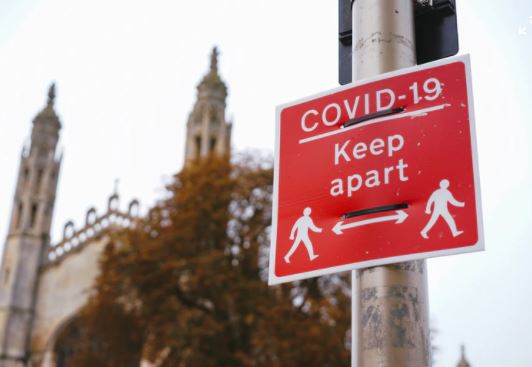July 7 (Independent) – Some countries are ignoring the risks still posed by coronavirus by attempting to relax restrictions “very prematurely” a WHO expert has warned.
Speaking on a Facebook Live Q and A, the executive director of the World Health Organisation’s (WHO) Health Emergencies Programme, Dr Mike Ryan urged world leaders against rushing to get back to “full normality.”
For similar articles, join our Whatsapp group for the latest updates. – click here
“We’ve made a very premature rush back to full normality and I think we’re going to pay a price for that,” Dr Ryan said.
“We’re not there with vaccination, the variants are really there and we haven’t protected enough people and I honestly think we need to think our way through this.”
Dr Ryan warned of the Delta variant, which is “much more transmissible,” and urged patience.
He said: “We’re opening up way too quickly for the epidemiological situation and the risks associated with that. We just need to be a little more patient.”
He warned that relaxing too soon during the summer could see a return to the situation seen in the UK last Autumn, when rising cases led to two more national lockdowns.
“Remember last summer when everything got good and then everyone kind of relaxed and we kind of arrived in September and October and ended up in huge trouble,” he said. “I think that’s where we’re going again with a much more transmissible variable this time around. That’s the issue.”
His comments came as Boris Johnson on Monday announced an end to enforced mask-wearing and social distancing after 19 July, when England’s final stage of re-opening is set to commence despite rising cases.
According to the latest figures from Public Health England (PHE), there were 27,334 positive cases recorded on Monday, with 358 patients admitted to hospital and nine deaths within 28 days of a positive test.
On Tuesday, health secretary Sajid Javid said that the UK could see cases top 100,000 per day as the country fully reopens.
“As we ease and go into the summer, we expect them to rise significantly and could go as high as 100,000 case numbers,” he said.
However, he argued a drop in hospitalisations and deaths caused by coronavirus meant the country was in a different position to last Autumn.
Public Health England figures indicate that the vaccines are highly effective in preventing the Delta variant from leading to severe illness or hospital admission, especially after two doses.
However, Dr Maria Van Kerkhove, who also took part in the Q and A, warned against future variants and mutations.
“The virus is still evolving. There will be more variants. And variants mutate, the become more fit, and they will become more transmissible because that’s what they do,” she said.
She said the presence of more transmissible variants will be “a reality” and “without the vaccine coverage reaching the levels that we need, it’s a dangerous situation.”
As of Sunday, 86.1 percent of the adult population in the UK had received one dose of a coronavirus vaccine and 64 percent had received both, according to Public Health England figures.
Subscribe to our Whatsapp channel for the latest updates on the news you need to know




























































